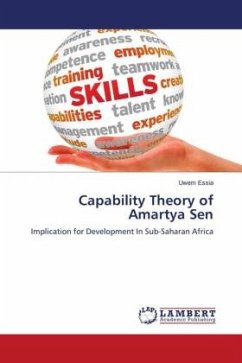With the development of economic science and the emergence of utilitarian analyses, the behaviour of economic agents comes to be understood by modern theory through the premise that individuals are self-interested and that the measure of social well-being is linked to consumption. We draw on the vision of economist Amartya Sen to counter this view of well-being and clarify the weaknesses of utilitarian analysis. However, we don't want to deny the importance of current models of economic analysis. The main aim of this work is to promote debate on whether the utilitarian view of self-interest is sufficient to predict and explain economic decisions. Although it is a strong motivator of actions, another part of the motivations can be related to ethical and moral standards, and can even influence the economic agent to deprive themselves of advantages in certain economic transactions in order to defend causes of collective interest. Could ethics also explain human behaviour? If so, then it would be up to economic science, allied to the study of ethics, to strengthen its models and even review its utilitarian vision of well-being.
Bitte wählen Sie Ihr Anliegen aus.
Rechnungen
Retourenschein anfordern
Bestellstatus
Storno








